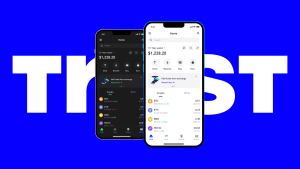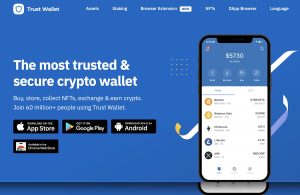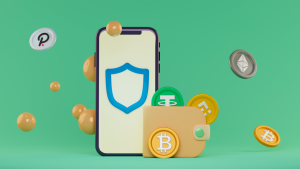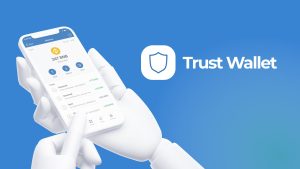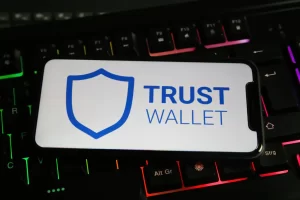Which is safe Binance or Trust Wallet?
Both Binance and Trust Wallet are generally safe, but Binance is a centralized exchange with potential risks of hacking, while Trust Wallet is a decentralized wallet, giving you full control of your funds. Always use two-factor authentication and practice security measures.

Understanding the Safety Features of Binance
Key Security Measures on Binance
-
Two-Factor Authentication (2FA): Binance requires users to set up two-factor authentication to secure their accounts. This extra layer of protection ensures that even if your password is compromised, an attacker cannot access your account without the second verification code.
-
Cold Storage for Funds: Binance keeps the majority of user funds in cold storage, which means they are kept offline and are much harder to access by hackers. Only a small portion of funds are stored online for operational purposes.
-
Anti-Phishing Protection: Binance offers an anti-phishing feature that lets users set up a unique code in their email notifications. This ensures that you are interacting only with legitimate Binance communications, protecting you from phishing attempts.
How to Protect Your Binance Account
-
Enable Two-Factor Authentication (2FA): To add an extra layer of security, always enable two-factor authentication on your Binance account. This ensures that access requires both your password and a code sent to your authentication app, providing enhanced protection.
-
Use Strong, Unique Passwords: Create a password that is both long and complex, containing a mix of upper and lowercase letters, numbers, and symbols. Avoid reusing passwords across different accounts to minimize the risk of a data breach.
-
Withdraw Funds to Secure Wallets: For long-term storage, move your funds to a secure wallet, such as a hardware wallet. This ensures your assets are not exposed to potential exchange hacks, adding an extra layer of security beyond what Binance provides.
How Trust Wallet Ensures User Security
The Role of Private Keys in Trust Wallet
-
Full Control of Funds: Trust Wallet generates private keys that only the user has access to. This ensures that no third party, including the wallet provider, has control over your assets, reducing the risk of external breaches.
-
No Centralized Storage: Unlike exchanges, Trust Wallet does not store your private keys on centralized servers, making them less vulnerable to hacking. The keys remain on your device, ensuring that only you have access.
-
Security through Encryption: Your private keys are encrypted and stored locally on your device, which makes it significantly harder for hackers to access them. This encryption adds an additional layer of protection for your assets.
Trust Wallet’s Backup and Recovery Options
-
12-Word Recovery Phrase: Trust Wallet provides a 12-word recovery phrase during wallet setup. This phrase is critical for backing up and recovering your wallet if your device is lost or stolen. It’s important to store this phrase in a safe location.
-
Backup on Multiple Devices: Trust Wallet allows you to back up your wallet on multiple devices. This ensures that even if one device is lost or damaged, you can still recover access to your funds.
-
Restoration Process: In case of data loss, you can restore your wallet by simply entering the 12-word phrase. This process is straightforward and helps recover your assets without involving a third party.
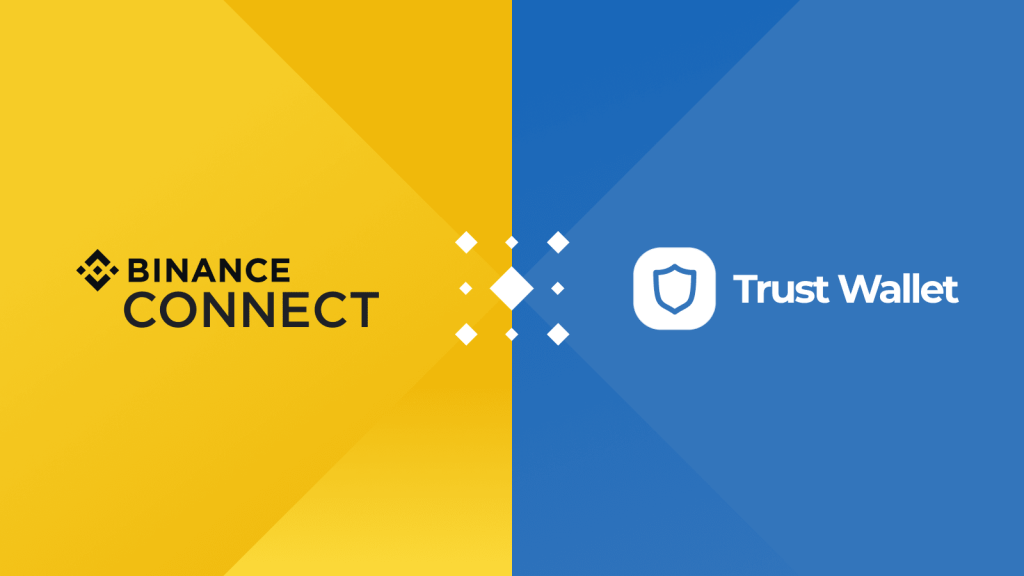
Binance vs Trust Wallet: Which Offers Better Protection?
Security Protocols on Binance
-
Two-Factor Authentication (2FA): Binance strongly encourages users to activate 2FA, adding an extra layer of security. Even if your password is compromised, an attacker would need access to your authentication device to gain entry.
-
Cold Storage for Funds: Binance stores the majority of user funds in cold wallets, which are offline and protected from online hacking attempts. Only a small percentage of assets are kept in hot wallets for liquidity purposes.
-
Anti-Phishing Features: Binance includes anti-phishing protection by allowing users to set a unique code for email notifications. This ensures that any communication claiming to be from Binance is legitimate, reducing the risk of phishing attacks.
Trust Wallet’s Decentralized Security Model
-
Full Control of Private Keys: Trust Wallet’s decentralized nature means users have full control over their private keys. Since the keys are stored locally on the user’s device, there is no third-party access, which minimizes the risk of theft from centralized breaches.
-
No Centralized Server Risks: Trust Wallet does not store user data or private keys on centralized servers. This ensures there is no single point of failure that hackers can target, giving users more control and security over their funds.
-
Secure Backup and Recovery: Trust Wallet provides users with a 12-word recovery phrase. As long as this phrase is kept safe, users can recover their funds even if their device is lost or damaged. This decentralized backup system minimizes the risks associated with centralized data storage.

Is Binance Safe for Cryptocurrency Trading?
Binance’s Two-Factor Authentication Explained
-
Enhanced Account Security: Two-factor authentication (2FA) adds an extra layer of security to your Binance account. After setting it up, you need both your password and a code sent to your authentication device, making unauthorized access much harder.
-
Google Authenticator or SMS Option: Binance offers two 2FA options: Google Authenticator, which generates time-sensitive codes on your device, and SMS, which sends codes via text. Google Authenticator is generally more secure as it doesn’t rely on your phone number.
-
Protecting Your Funds: By requiring an additional verification step, Binance ensures that even if your account credentials are compromised, your funds remain protected. It helps prevent unauthorized withdrawals or changes to your account settings.
Risk Management on Binance
-
Insurance Fund: Binance has established an insurance fund (known as SAFU) to cover potential losses in the event of a security breach. This fund helps protect users from unexpected risks and gives a layer of reassurance.
-
Stop-Loss and Take-Profit Orders: Binance allows users to set up stop-loss and take-profit orders, helping to minimize risks by automatically selling assets at predefined price points. This helps traders manage their exposure in volatile markets.
-
Advanced Security Protocols: Binance uses industry-standard encryption and advanced security protocols to protect user data. It also monitors accounts for suspicious activity and offers immediate alerts to prevent potential security issues.
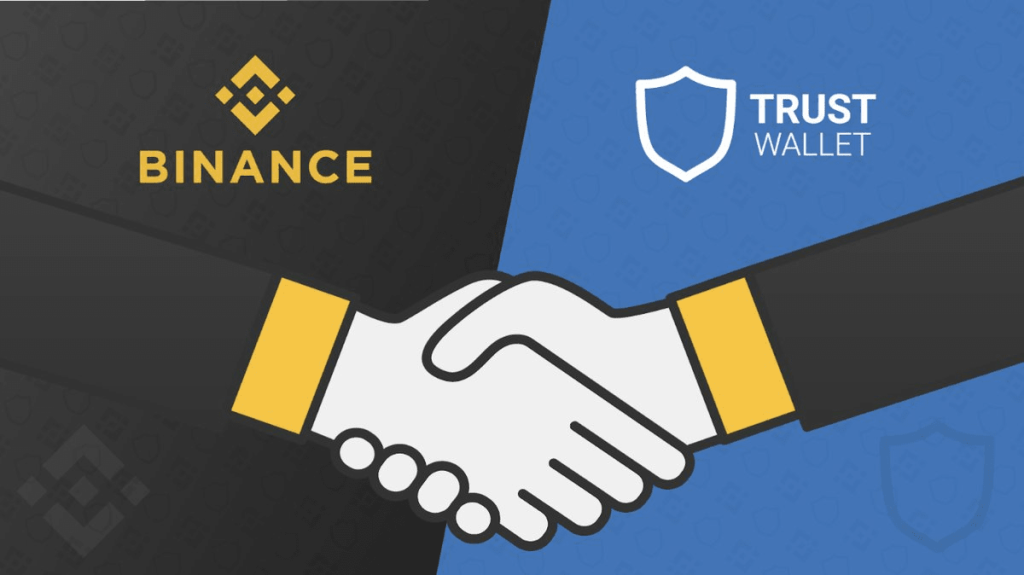
Trust Wallet: The Safe Choice for Crypto Storage?
Understanding Trust Wallet’s Security Features
-
Decentralized Control: Trust Wallet is a decentralized wallet, meaning users retain full control over their private keys. This ensures that only the wallet holder can access their funds, reducing the risk of centralized exchange breaches.
-
Encryption of Private Keys: Trust Wallet encrypts your private keys and stores them locally on your device. This makes it difficult for hackers to access your assets, as your keys are not stored on online servers.
-
No Personal Information Required: Trust Wallet does not require personal information or identification for use, protecting your privacy. Since there’s no account registration, the risk of identity theft is minimized.
How to Safeguard Your Trust Wallet Assets
-
Backup with 12-Word Recovery Phrase: When setting up Trust Wallet, you’re given a 12-word recovery phrase. Storing this phrase securely is vital because it’s the only way to recover your funds if your device is lost or damaged.
-
Avoid Phishing Scams: Always double-check the authenticity of any communication or links related to Trust Wallet. Never share your recovery phrase or private keys with anyone, as phishing scams are common.
-
Use Hardware Wallets for Long-Term Storage: For enhanced security, consider storing large amounts of cryptocurrency on a hardware wallet, such as a Ledger or Trezor. While Trust Wallet is secure, hardware wallets provide an added layer of protection for long-term storage.

